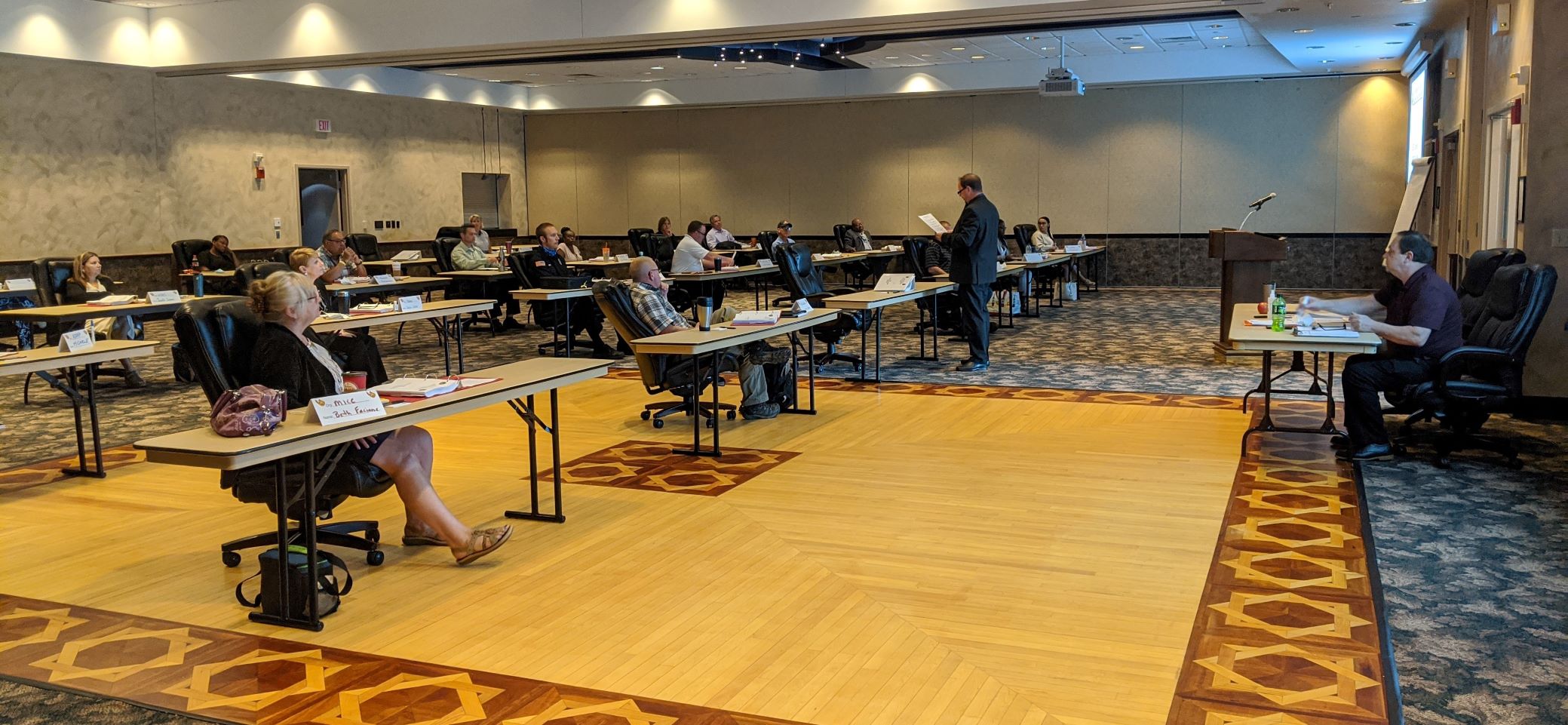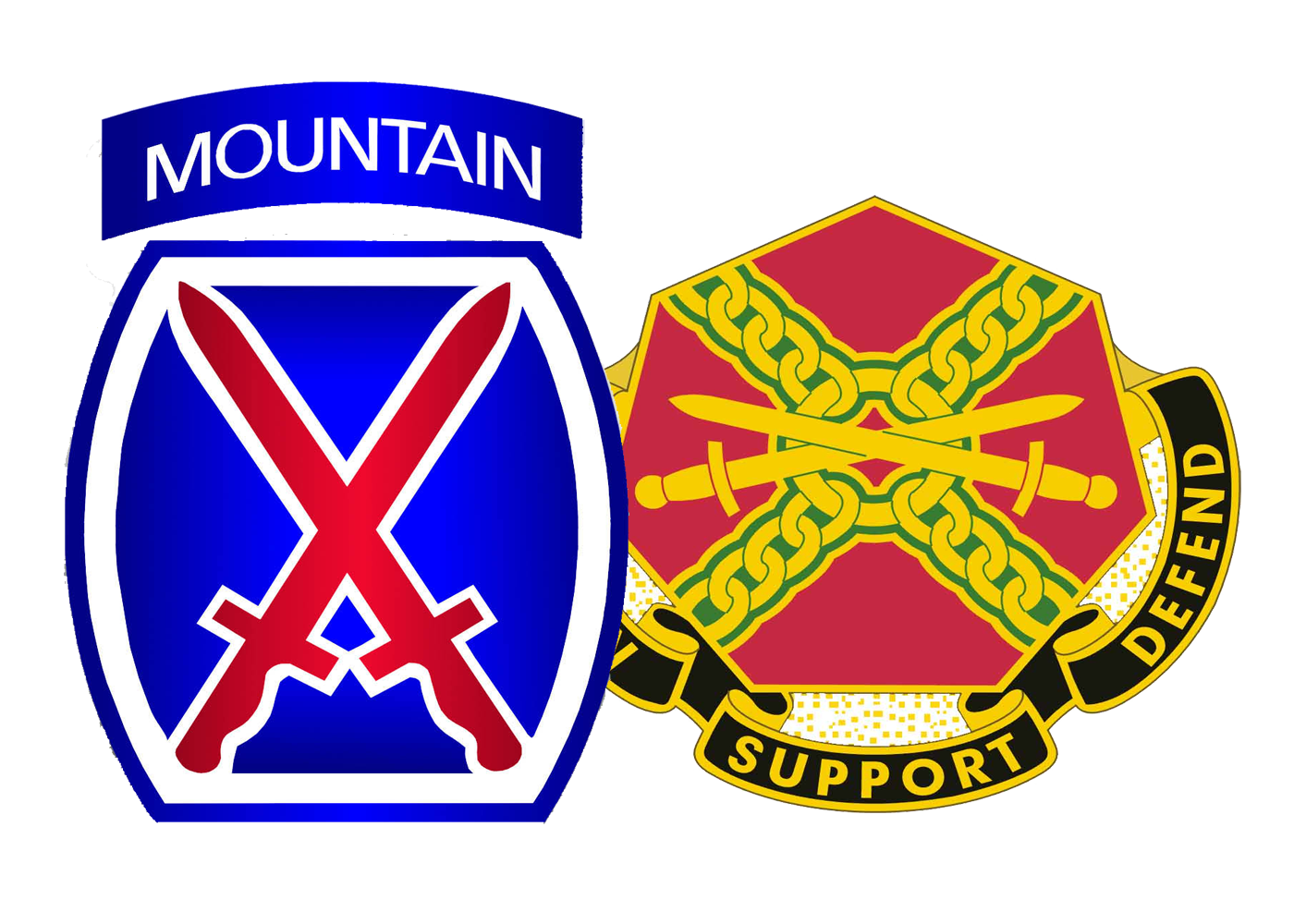
Fort Drum civilian employees participate in a week of instruction, role-playing exercises and testing that led to them being certified as equal employment opportunity counselors Aug. 14. (Photo by Mike Strasser, Fort Drum Garrison Public Affairs)
Fort Drum officials certify new EEO counselors trained in safe, COVID-19-compliant class
Mike Strasser
Fort Drum Garrison Public Affairs
FORT DRUM, N.Y. (Aug. 17, 2020) – More than 20 Fort Drum civilian employees were certified as equal employment opportunity counselors Aug. 14 after a week of instruction, role-playing exercises and testing.
The course is usually offered at Fort Drum once every four years, based on the need of the garrison. This one in particular had the distinction of being the only EEO counselors certification course approved so far this fiscal year by the U.S. Army Installation Management Command for in-person learning during the COVID-19 pandemic.
With that, a required safety protocol had to be met and sustained throughout the week. Held inside the spacious Commons ballroom, participants sat at individual tables spread far apart, and they wore face masks when physical distancing couldn’t be maintained. A cleaning crew sanitized the room before class began each morning.
Throughout the course, attendees learned EEO laws and regulations, the EEO complaint process, theories of discrimination, the counseling process and how to prepare a counselor’s report.
Barry Dubois, Fort Drum Equal Employment Opportunity officer, said that counselors serve as educators, communicators and facilitators, but their primary responsibility lies within the EEO complaint process.
He said that EEO counselors assist the EEO office by volunteering to counsel a complaint. When assigned to conduct an inquiry, their role is three-dimensional.
“First, the avenues of communication between the parties are opened,” Dubois said. “Second, the counselor gathers and validates factual information relating to the allegations of discrimination upon which to propose an informal resolution. Third, the counselor clarifies the situation for all parties involved in the pre-complaint – the counselor, the EEO officer, the aggrieved individual and the leadership.”
Dubois said that a good counselor has the ability to remain neutral, objective and professional while facilitating resolutions of employment-related issues and concerns. They also serve as the eyes and ears of the EEO office.
“In their day-to-day dealings with employees, leaders and organizations, they are able to identify and surface to the EEO officer any employment-related concerns and systematic issues that may exist and affect the work environment,” he said. “This allows the EEO office to work with the commander and leadership to promptly correct potential problem situations.”
Counselors act as a conduit and sounding board through which employees can talk about the leadership’s conception or implementation of the EEO program.
“In this way, the counselor becomes an Army ombudsman for two-way communication between the leadership and employees on highly sensitive, important and timely issues related to equal employment opportunity,” Dubois said.
The course is open to all Department of the Army civilian employees, and those who attended had covered the spectrum of Fort Drum’s workforce – program managers and supervisors, a firefighter, administrative clerks and a carpenter, to name a few. Some had experience with the EEO program, while others were interested in learning new skills.
“What they all have in common is they all want to help people,” Dubois said. “They can do this by sharing information and facilitating resolutions for workplace disputes.”
Dubois said that there is not a high level of EEO complaints at Fort Drum, but having a large number of counselors helps fill voids due to retirement or relocation.
“There’s a need Armywide for counselors, though, and we get called upon from other installations asking if we have a counselor available,” he said.
Dan Lewis, a carpenter with Fort Drum Public Works, had previously served as a union president for wage grade employees. He said that becoming an EEO counselor was another way he could support the workforce.
“It’s something I can do to give back, make a difference,” he said. “I’ve always had a profound belief that you have to stand up and help people – make things right and make it a better place for everyone.”
To learn more about the Fort Drum EEO Program, visit https://home.army.mil/drum/index.php/my-fort/all-services/equal-employment-opportunity-program.





